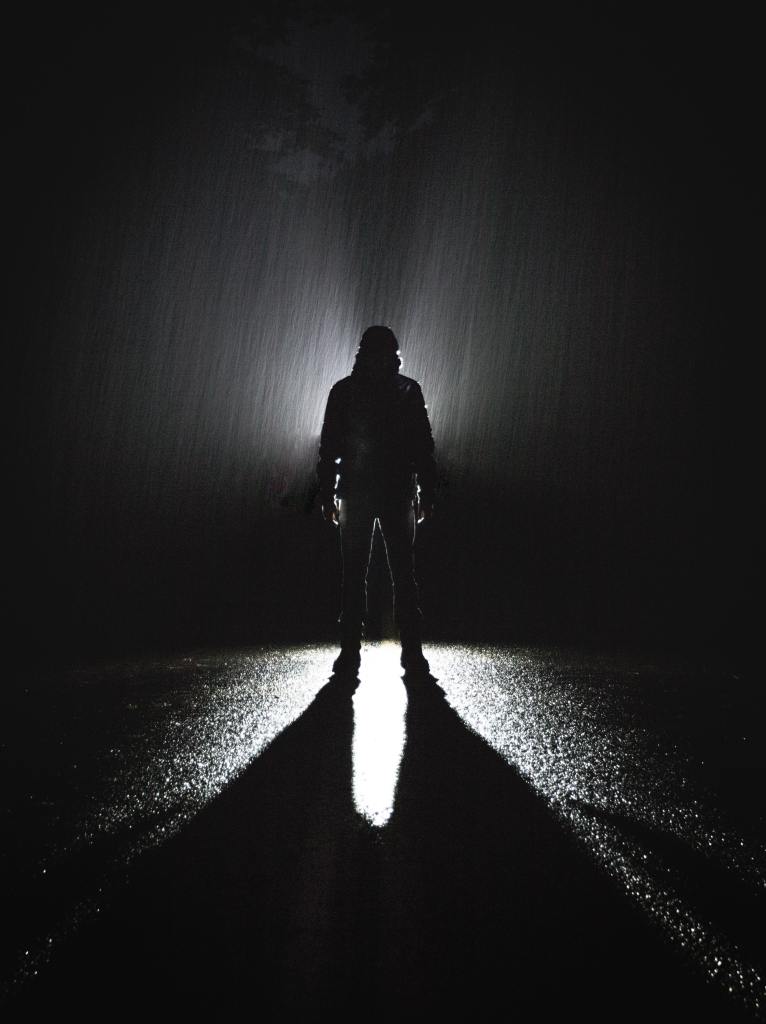As we progress through alcohol sobriety and work to improve other areas of our lives and ourselves, adjusting what we choose to focus on from the past can be healthy. It can also be difficult, as we’re conditioned to think that anyone who gets sober after a history of heavy drinking must have a serious personal problem and a sordid past full of regretful behavior. Some recovery groups encourage making amends with those we have “wronged.” Sure, many who drink too much have wronged or offended plenty of people – and apologies can have great benefits all around. But we don’t need to beat ourselves up forever.
Because we stigmatize alcohol problems so deeply in this society, shame can be a powerful, but often unproductive part of the recovery process. Focusing exclusively on bad memories related to alcohol can be unhealthy and lead to toxic shame. A certain degree of repressing positive drinking memories may be healthy and protective up front, but eventually, it can be more useful to put bad memories in context by recalling good memories as well.

The bad stuff
Sometimes I focus far too much on the negative aspects of my drinking days – on things I regret having done or just feel uncomfortable about. I know this is partly protective, a way for me to feel secure in my decision to quit drinking. It keeps me from dwelling on what I’m missing out on. It also makes me more committed to improving myself and pursuing meaningful change.
But it can also expose feelings of residual shame when they should no longer have a place, causing me to feel generally uncomfortable in my own skin and unable to move forward in my life. A sense of toxic shame, or negative self-judgment to the point that it becomes “a paralyzing global assessment of oneself as a person,” can creep up on me. Having these feelings arise when I’m not expecting it – usually when I’m anxious or frustrated about other life challenges – prevents me from developing the self-esteem and confidence I know I ought to have.
When left unchecked, shame can lead to harmful beliefs such as perceiving yourself as a failure, a bad person, or unlovable, and that you don’t deserve to be happy. It can cause “feelings of deep inadequacy, lack of worth and the need to hide,” and over time can contribute to the development of depression, other mental health issues, and substance abuse.

I’m a strong believer that reflection and introspection are imperative to understanding our own psychologies. But scrutinizing our past behavior so much that we punish our prior selves is not productive. My heaviest drinking took place in my late teens and early twenties – a time when most people are still developing their sense of identity and leap at immediate rewards, disregarding risks and long-term consequences. They have a uniquely strong need for social connection and validation, as well as a sense of invincibility.
With alcohol being a flawed catalyst in this process of coming-of-age, these developmental factors can mix one volatile cocktail. There was nothing all that unique in the way I drank during and after college, and there’s no reason for me to feel ashamed of it long after stopping. Only distress can come from atoning forever in my now-sober mind.

The good stuff
By over-focusing on negative experiences with alcohol, we may also be fooling ourselves. For most of us, there were good times, too. Those positive experiences played a part in the development of who we are today. If we ignore them, knowing we aren’t being completely honest with ourselves, we might become doubtful and disillusioned by our decision to give up alcohol. That can put us at a greater risk of lapsing back into drinking.
I occasionally find myself feeling deeply reminiscent of alcohol’s original pull – the sense of euphoria and connection it brought, and a fiery (yet often destructive) way of feeling alive that is utterly remote now. That nostalgia can come on with surprising vividness, as if I’m experiencing it all again. In a way, it’s invigorating, like seeing an old friend or having a childhood memory come back clearly.
But in another way, it’s tremendously painful – like the hallucinatory shimmer of a mirage that I know will fade in the dry desert heat. I’m reminded of a sense of excitement and abandon that I’m not sure I’ll ever experience to the same degree. For better or for worse, the feeling passes quickly.

Nostalgia is natural in the recovery process, but “euphoric recall” or selective memory can be dangerous, causing us to forget the negative effects that once weighed heavily on us. It’s absolutely something to be cautious about. For my own healing, however, I think it’s important for me to allow certain positive feelings and associations with alcohol to exist – to recall that not everything alcohol brought me was terrible. I’d rather not delude myself, for I’ll know I’m doing so and eventually resent myself for it. I can only put my history in context with who I am now by letting all of it – the yin and the yang – simply be.
Negative experiences with alcohol have imprinted on my memory and contributed to my decision to undergo a massive change and healing process. A certain healthy level of shame and regret made that possible. At the same time, many elements of my personality, my humor, and my outgoing nature were fostered in the hands of alcohol. By remembering that, I don’t have to feel so remorseful of years “wasted” drinking. Those years were part of my life, too. And I can’t change them. So I might as well acknowledge what good they brought me.

The full circle
When it comes to alcohol, the negative ended up outweighing the positive for me. But I can’t discount the fact that I had a lot of good experiences, spending a large chunk of my formative and most exciting years under the influence of alcohol. I’ve come to understand that it’s perfectly healthy to grieve the loss of some once-cherished parts of my life and my identity that involved alcohol. And, contrary to popular opinion, I can do that while recognizing that the other side of alcohol’s capricious coin caused me significant distress. It resulted in my decision to quit drinking and catalyzed the development of the fuller and more conscious person I am now.
Though doing so can help in the initial months or even years after quitting, putting any good memories and thoughts about alcohol off limits forever can feel disingenuous and build temptation. In order to openly reflect on positive alcohol-related memories, one has to be at a certain point beyond strong cravings, wary of the dangers of letting the positives outshine the negatives. But if it becomes possible for you to do so safely, reflecting on the good can be rewarding, healing, and help you to create a fuller picture of how you became who you are today.
–Dana G


Woahhhhh great post Dana! It’s really nice to just talk it out, helps a lot with my stuff too 🙂
LikeLiked by 1 person
Thank you so much for your comment, Ying! I agree. I process a lot of things through writing!
LikeLike
Great job exploring the narrative we tell ourselves around drinking. I agree that we shouldn’t stay stuck in our shame and our past. I also agree that there were good times created by that feeling of euphoria and abandon. I guess I’ve come to terms with it by reasoning that the benefits of sobriety far outweigh any temporary feelings of euphoria I may have had. And the peace is priceless. 💕
LikeLiked by 1 person
Thanks, Collette! I totally agree. It’s always important to put nostalgia in perspective with the “slower burn” benefits of sobriety, and a general feeling of peace. Though we might have only found that certain sense of excitement and euphoria when drinking, we frequently ended up with equally intense turbulence and pain (at least, I certainly did). It’s such a relief to be out of that place.
LikeLike
Killer post.
The “old freind” of alcohol image.
I’ve always heard that and it always brings up connotations of like “an old friend that I still wanna be friends with. Or a friend that I miss. And so I spend my days missing that relationship I had with alcohol or something like that.
And considering what my life is now. And reflecting upon that metaphor. I would say it’s more like an old girlfriend. Like, sure it ended badly, but we had great times, but I don’t want to go and be in a relationship with a girlfriend anymore. Sure we had great sex we had fun. She’s hot as hell. Stuff like that. But I’m cool now. There’s no anything about going or getting back together without a girlfriend, even as I can remember the good times and the bad. I can feel sad because of how shitty it was and how much I hurt her. And I could be happy because all the great times we had together. And neither of those really affects me in any way that I would want to go back to her or have that relationship again. It really is that I can look at the good times and I can be happy, and I could look at the terrible times and be sad. But none of those really affect me to make me have any sort of desire or or anything that messes with me what’s going on with me now, if that makes sense.
But yeah I like what you said. The first thing that Hass to be overcome is kind of that obsession, right? What people call craving. But what I understand as craving is after I have a drink, then I crave some more. I see that as a purely physical thing. When I don’t drink and I’m constantly thinking that I want to, to me that’s more and obsession. It’s more mental.
But sure those things kind of have to be dealt with. Then we get into the pure mental health aspect I think.
Yeah. Addiction and alcohol I think has two stages. There is the dealing directly with the addiction. And then there’s the pure mental health aspect.
Thanks!
LikeLiked by 1 person
So well said! And thank you. To me, nostalgia feels like missing both an old friend and a part of my own identity that I once held dear (even idolized). I do feel that I’m mourning the loss less with time, as I get used to the newer identity I’ve built for myself. I like your analogy of an ex-partner – that’s another helpful way of thinking about it! A turbulent relationship, indeed. I also agree that this has to happen in stages – for many people, getting over cravings and urges is step 1. But not many people in the general public or in recovery know as much about the process of repairing our mental health that needs to happen after that point. Not even myself… I’m just now learning all of this.
LikeLiked by 1 person
Brilliant post. It’s so important at some time in your sobriety to acknowledge that you have said goodbye to a part of your life that brought times of happiness and it’s ok to miss that. Allowing ourselves to grieve that it won’t be the same again is part of the recovery process. I know the highs I had with alcohol are no longer worth the lows it brings with it. My shame was at max level whilst drinking and it chipped away at my self esteem until there was nothing really left. I have spent 8 months slowly building it back up again. It’s only now I can look back and see what a terrible shame and addiction cycle I was in. So many complexities to alcohol addiction and sobriety isn’t there?
Claire x
LikeLiked by 1 person
That’s so true! And thank you. It’s hard for me to re-enter my mindset from back when I drank… to figure out why I put up with feeling so dismal so often, and for so long. But it was truly a matter of feeling stuck. It seemed at the time like the alternative was for people a lot more patient and tough than me (and probably less fun). Life has its own challenges without drinking, and maybe I AM less fun, but at least I can work on recovering my self esteem – no longer feeling worried or literally sick to my stomach about things I did or said.
LikeLiked by 1 person
I worried for a long time that I wasn’t ‘fun’ anymore and eventually realised I didn’t much care. I totally get you with the anxiety and worry the following day. It’s such a relief to not have that anymore, even if I am a little dull occasionally. I suspect we are not boring or dull, I was probably far more dull when I droned on and on with my drunken waffle. 😂😂
LikeLiked by 1 person
Hah! I totally agree… the nature of “fun” has shifted for me. That doesn’t mean I don’t miss the old ways of having fun. But they had a pretty lousy downside, so I have to accept that I now need to find my thrills, indulgence, and adventure in other ways.
LikeLiked by 1 person
❤️❤️
LikeLike